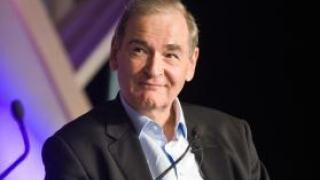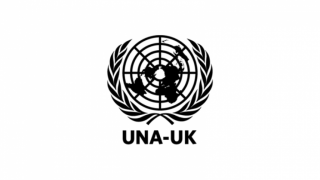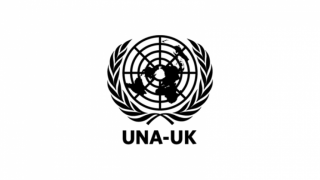
Russia and NATO need to "de-conflict" and find areas of common ground in order to establish a lasting solution to the crisis in Syria, said UNA-UK's Chairman, Sir Jeremy Greenstock, to the BBC World Service and BBC Newsnight.
Sir Jeremy, a former UK ambassador to the United Nations, criticised Russia's military campaign in Syria during an interview with presenter Emily Maitlis on BBC Newsnight:
"This is a gradual escalation which is quite unnecessary in the circumstances, because Russia has a certain contempt for Western decision-making and is trying to play a larger role on the global scene [to serve] its own interests. There will be unintended consequences to the extra use of military hardware in a very flammable and dangerous region."
Tension has spiralled between Russia and western powers over the past weeks due to conflicting objectives in Syria. While Russia continues to back the Assad regime and target rebel forces, the US and the UK refuse to recognise the legitimacy of President Assad. The UK conceded, however, that Assad may be required to play a role in a transitional Syrian government for up to six months.
Speaking on Newsnight, Sir Jeremy insisted that Assad's record of human rights abuses has rendered him unsuitable as a leader:
"the Russians have attached their bandwagon to someone who is not a man of the future, President Assad, who’s dropping barrel bombs on his own people, who’s lost his legitimacy."
However, Sir Jeremy added, there will need to be a degree of compromise on both sides to ensure that current tensions do not trigger a "hot war" between Russia and the West:
"what big powers need to do is to work out between themselves what their mutual interests are and de-conflict because the most dangerous thing that can go wrong in today’s world is the big powers falling out to the point of conflict."
In conversation with Owen Bennett-Jones on BBC World Service's Newshour, Sir Jeremy was optimistic about the possibility of reaching compromise. He explained that Russia and the West should focus on their mutual objective of "not having a Middle East in flames" and of minimising the rise of radical extremism in Russia, the US and the UK.
This cooperation, if achieved, should extend not only to military objectives, but to ensuring lasting peace in Syria. For Sir Jeremy, ongoing turbulence in Libya, Iraq and Afghanistan has demonstrated that the West needs to develop longer-term strategies for rebuilding a country after intervention:
"I’m sceptical not about the value of intervention in terms of getting rid of a threat; I have become more sceptical about the capacity of the West to construct a fresh, new, stable situation once they have intervened."
This requires cooperation with Russia and the wider international community, but also working with the Syrian people who Sir Jeremy recognises have "the greatest legitimacy in deciding what happens next."
Listen to Sir Jeremy's interview on BBC World Service (from 26:35)
Listen to Sir Jeremy's interview on BBC Newsnight (from 10:00)






